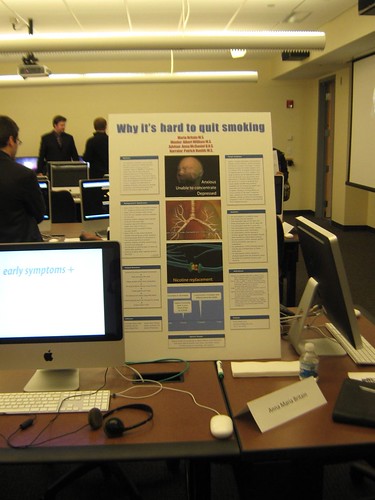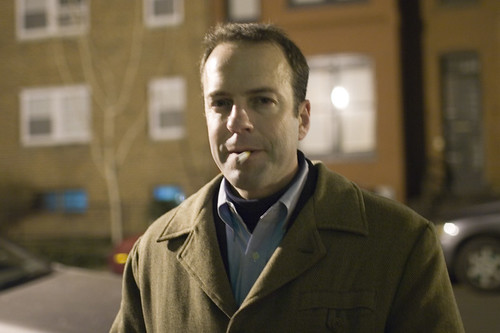Effective Tricks To Help You Stop Smoking For Good
Smoking has significant health risks, and it is not only harmful to you, but also to the people near you. It destroys your lungs and throat, damages your heart and wreaks havoc on your mouth. Furthermore, second-hand smoke is detrimental to the people around you. This is why it is important for you to quit smoking. This article provides several tips that may be able to help you quit successfully. If you can't do away with a craving altogether, try to at least hold out against it for as long as possible. For example, require yourself to take a long stroll before you give in and have a smoke. If nothing else, pour yourself a big iced tea and promise yourself to finish drinking it first. Just a little extra time before you light up might stop you from smoking that cigarette. If you do go ahead and smoke, the delay may at least reduce your smoking for that day. Hypnosis can help quit smoking. Many people have quit by going to a licensed hypnotist, and it could work for you, too. The hypnotist will induce a deep trance, and then repeat positive affirmations that will lodge themselves in your mind. Consider this option because it's worked for thousands of people! If you have a desire to stop smoking, you should consider trying hypnosis. Seeing a licensed hypnotist can be effective and has proven successful for many people. The hypnotist will supply you with positive reinforcement while you are in a deep trance. When you awake, cigarettes might not seem as appealing, meaning you're one step closer to quitting. If you are finding it difficult to stop smoking, speak to a doctor. Some medications can make it easier to quit smoking. Your doctor may have other resources on hand as well, such as support groups and toll-free hotlines where you can discuss your struggle. If you want to stop smoking, visit your doctor. Your doctor can offer you advice, information and tools that you can't get anywhere else. If the situation requires it, your doctor may prescribe you medication to quit smoking. There are wonderful supplements in the form of nicotine patches and even gum to help you stop smoking if you need some help. Using these nicotine-providing OTC products in conjunction with your own personal willpower will fight off the rough symptoms of withdrawal. It is important to find ways to cope with nicotine withdrawals, in order to keep from giving in to your cravings and the stress they may cause. Try finding new interests, such as exercise, an interesting hobby, or even a massage. Try to schedule these activities during times you usually have severe cravings for a cigarette. Fill your downtime with enjoyable, lighthearted distractions - the latest novel, date night or a cultural outing. It takes commitment to get through the process of quitting, meaning you need to make the decision to do so. Usually, people are not able to quit smoking unless they have a positive outlook. Your commitment to quitting must be substantiated by all of those reasons you have for quitting to begin with. Motivation and positive thinking can be very helpful in helping you quit smoking. Identify all the ways in which your life will benefit from being a non-smoker. Your breath will not smell like stale tobacco any longer, nor will your home. Your teeth may even be whiter! Make sure to also focus on the positive benefits to life after quitting smoking. Consider using a new brand when you begin to think to quit smoking. Switch to a brand that you don't like or a cigarette that you don't like the taste of. Avoid smoking more of them than you normally would or inhaling them in different ways. This will help you get started on the path to becoming a nonsmoker. Reduce smoking. Smoking less can be a good place to begin your plan to quit smoking. Wait as long as possible to have your first cigarette in the morning. Try smoking only a half cigarette in order to help you cut back on how much you smoke. Try to plan out how you will cope with the stressful times. Most smokers use cigarettes to calm themselves during stressful moments. If you have a plan on what you are going to do instead, you are more likely to avoid smoking. Prepare yourself with multiple strategies, so you're prepared if the first one doesn't work. If your goal is to finally stop smoking, you need to practice your skills at quitting. Many people who do not smoke anymore most likely were not successful the first time they tried. Stop smoking, and have the mindset that you will stop for as long as possible. If you should slip up, and light up, immediately get back on track and set a new quit date. Make a habit of quitting, and try to make it longer every time you quit. In time, you'll go long enough that you don't feel the need to smoke again. Smoking is both unhealthy and dangerous. From heart disease to lung cancer, the health issues caused by cigarettes are no laughing matter. Second-hand smoke is a dangerous health threat to anyone who is near you. If you take the advice from this article, you can hopefully find a way to quit. If you have been smoking inside your house, give it a complete scrub-down, once you have quit. Clean your house and wash your furniture, so it doesn't smell like smoke. The difference will be evident not only to you but to all your visitors, and you won't have to smell cigarettes while you are trying to quit.
Smoking has significant health risks, and it is not only harmful to you, but also to the people near you. It destroys your lungs and throat, damages your heart and wreaks havoc on your mouth. Furthermore, second-hand smoke is detrimental to the people around you. This is why it is important for you to quit smoking. This article provides several tips that may be able to help you quit successfully. If you can't do away with a craving altogether, try to at least hold out against it for as long as possible. For example, require yourself to take a long stroll before you give in and have a smoke. If nothing else, pour yourself a big iced tea and promise yourself to finish drinking it first. Just a little extra time before you light up might stop you from smoking that cigarette. If you do go ahead and smoke, the delay may at least reduce your smoking for that day. Hypnosis can help quit smoking. Many people have quit by going to a licensed hypnotist, and it could work for you, too. The hypnotist will induce a deep trance, and then repeat positive affirmations that will lodge themselves in your mind. Consider this option because it's worked for thousands of people! If you have a desire to stop smoking, you should consider trying hypnosis. Seeing a licensed hypnotist can be effective and has proven successful for many people. The hypnotist will supply you with positive reinforcement while you are in a deep trance. When you awake, cigarettes might not seem as appealing, meaning you're one step closer to quitting. If you are finding it difficult to stop smoking, speak to a doctor. Some medications can make it easier to quit smoking. Your doctor may have other resources on hand as well, such as support groups and toll-free hotlines where you can discuss your struggle. If you want to stop smoking, visit your doctor. Your doctor can offer you advice, information and tools that you can't get anywhere else. If the situation requires it, your doctor may prescribe you medication to quit smoking. There are wonderful supplements in the form of nicotine patches and even gum to help you stop smoking if you need some help. Using these nicotine-providing OTC products in conjunction with your own personal willpower will fight off the rough symptoms of withdrawal. It is important to find ways to cope with nicotine withdrawals, in order to keep from giving in to your cravings and the stress they may cause. Try finding new interests, such as exercise, an interesting hobby, or even a massage. Try to schedule these activities during times you usually have severe cravings for a cigarette. Fill your downtime with enjoyable, lighthearted distractions - the latest novel, date night or a cultural outing. It takes commitment to get through the process of quitting, meaning you need to make the decision to do so. Usually, people are not able to quit smoking unless they have a positive outlook. Your commitment to quitting must be substantiated by all of those reasons you have for quitting to begin with. Motivation and positive thinking can be very helpful in helping you quit smoking. Identify all the ways in which your life will benefit from being a non-smoker. Your breath will not smell like stale tobacco any longer, nor will your home. Your teeth may even be whiter! Make sure to also focus on the positive benefits to life after quitting smoking. Consider using a new brand when you begin to think to quit smoking. Switch to a brand that you don't like or a cigarette that you don't like the taste of. Avoid smoking more of them than you normally would or inhaling them in different ways. This will help you get started on the path to becoming a nonsmoker. Reduce smoking. Smoking less can be a good place to begin your plan to quit smoking. Wait as long as possible to have your first cigarette in the morning. Try smoking only a half cigarette in order to help you cut back on how much you smoke. Try to plan out how you will cope with the stressful times. Most smokers use cigarettes to calm themselves during stressful moments. If you have a plan on what you are going to do instead, you are more likely to avoid smoking. Prepare yourself with multiple strategies, so you're prepared if the first one doesn't work. If your goal is to finally stop smoking, you need to practice your skills at quitting. Many people who do not smoke anymore most likely were not successful the first time they tried. Stop smoking, and have the mindset that you will stop for as long as possible. If you should slip up, and light up, immediately get back on track and set a new quit date. Make a habit of quitting, and try to make it longer every time you quit. In time, you'll go long enough that you don't feel the need to smoke again. Smoking is both unhealthy and dangerous. From heart disease to lung cancer, the health issues caused by cigarettes are no laughing matter. Second-hand smoke is a dangerous health threat to anyone who is near you. If you take the advice from this article, you can hopefully find a way to quit. If you have been smoking inside your house, give it a complete scrub-down, once you have quit. Clean your house and wash your furniture, so it doesn't smell like smoke. The difference will be evident not only to you but to all your visitors, and you won't have to smell cigarettes while you are trying to quit.











